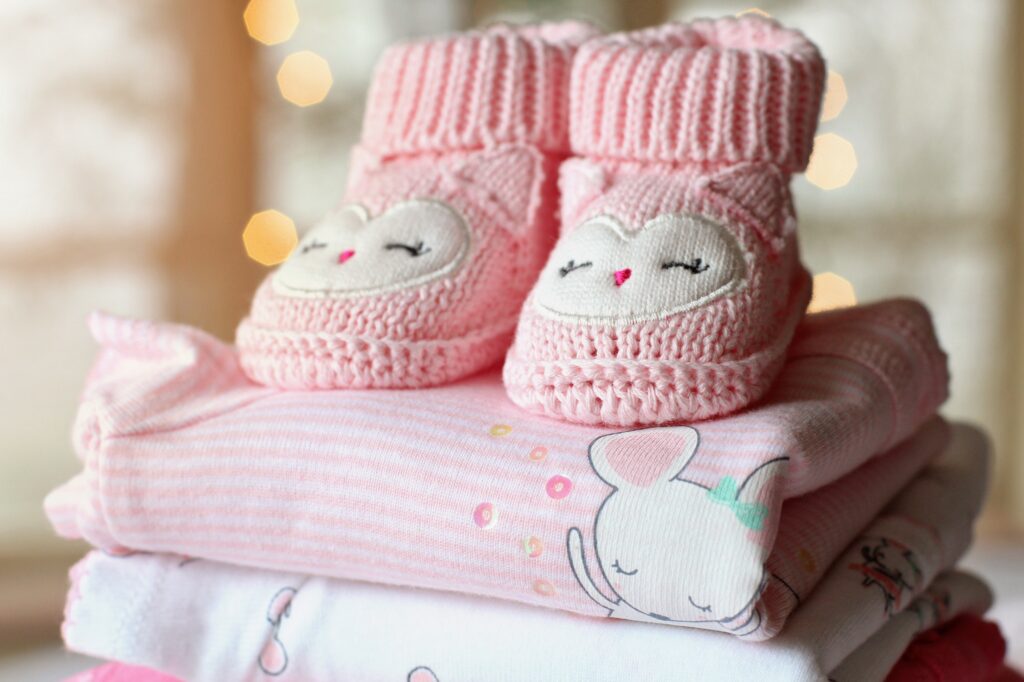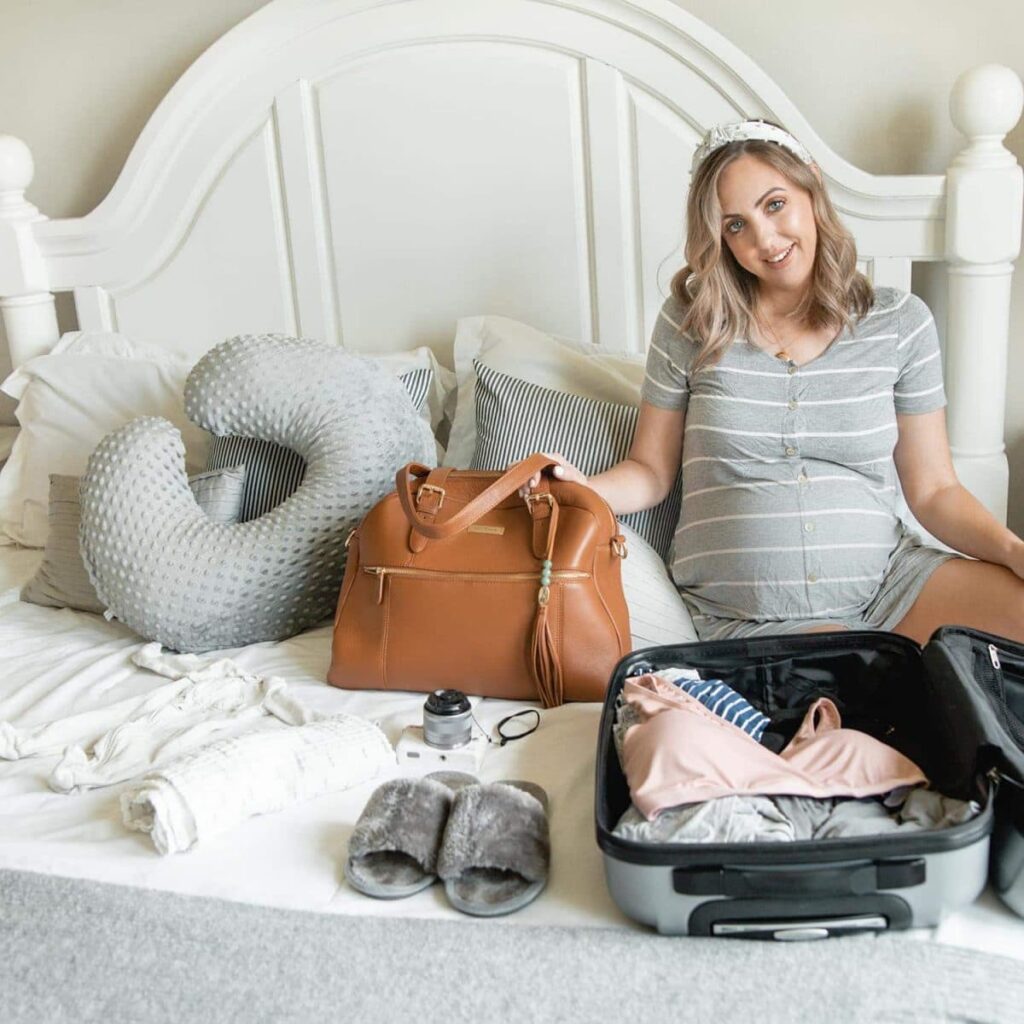Nothing can fully prepare you for the experience of having a baby, especially the first one. But with the proper planning, the journey can be a little less scary and more of another joyful beginning for your marriage life, full of wonder and limitless possibilities. Here are seven tips on how to prepare for your first baby.
1. Learn as much as possible about the birth process
For a first-time mom, the prospect of labor and delivery can seem exceedingly frightening. But knowledge dispels fear. Knowing and preparing for the journey ahead will empower you and get rid of most of the anxiety.
A great way to do this might be to take a birth class and learn about the stages of labor, breathing techniques, and what options you have for pain management. You can also watch documentaries on the birth process and watch videos of actual deliveries. Though every woman’s journey is different, talking to other moms who have already gone through birth is also a great way of finding out what you can expect before, during, and after the delivery.
After researching, it’s usually a good idea to sit down with your mid-wife and create a birth plan to help you communicate your preferences for the baby’s birth.

2. Involve your partner
Support and understanding from your partner can reduce any anxiety related to the birth. Parenthood will involve both you and your partner, so make sure you are on the same page.
Communicate clearly on the role of your partner during and after the labor and birth. Talk about changes you expect to make after birth and how to ease into this new stage of life. This is an excellent time to make big decisions such as names, circumcision, and religious ceremonies together.
3. Financial planning

There’s no doubt about it; having a baby can be a costly endeavor. Financial preparations for the baby should ideally start before you are pregnant. It is vital to make a financial plan with your partner consisting of the costs you are expected to have at three different stages.
- During pregnancy; this will include costs for medical consultations, ultra-sounds, diet-changes, and any programs you are participating in before the baby is born. Include what you agree to spend on baby-shopping for clothing and other equipment such as carriers and strollers.
- During delivery- Visit the hospital where you plan to have the birth and determine the costs for regular and cesarean delivery. Make sure you have some extra cash saved up in case of any other emergency.
- After delivery- this will include planning for costs immediately after the baby’s birth, such as vaccinations and other medical consultations with the pediatrician. Costs for baby products such as diapers, toys, and hygiene equipment should be included here.
It is essential to go over your insurance plan and see what costs it covers to create your financial plan. Also, find out if your plan covers you and the baby before and after delivery.
Having a baby is a long-term commitment, and the costs will not stop coming after the first three months or year and as such, preparing for the child’s future is vital. Consider long-term savings for the child’s education and other needs.
4. Baby Shopping

There are quite a lot of essentials that a baby needs when you bring them home, from a baby hip seat to hygiene equipment and clothes. While you don’t necessarily need to have every baby product out there, make sure you stock up on the essentials for both you and the baby. Some of the things you should get include:
- Nappies and hygiene equipment- you can go for either disposable diapers or reusable ones depending on your preferences.
- Clothing- buy enough clothing to tide over the baby for at least the first few weeks.
- Bottles- For bottle-feeding or carrying a snack for the baby. You can also toss in a formula if you plan to bottle feed.
- A sleeping cot and transport equipment such as carriers and car seats
- Some few toys
- A nursing bra if you feel you might need one.
You can also stock-up on other household essentials to avoid multiple trips to the store after delivery. You can explore and shop baby products from Baby Hills Thailand to prepare for the baby. You can also check out Beautiful Bambino for strollers, car seats, cribs, and more.
5. Prepare for the actual birth
To reduce anxiety and boost your confidence, have a comprehensive plan about what will happen when it comes to delivery. Although things may not go as planned, having a plan in place will help provide a course of action and quell any fears you may have. Know what to do when labor starts; who will you call, how will you get to the hospital, among other issues. Make sure you also decide beforehand on who you want to attend the birth with you.
6. Pack a hospital bag

Make sure you have your hospital bag packed weeks before your due date. The last thing you will want to worry about once labor starts are whether you’ve packed everything. You can also add items that will make your stay at the hospital more comfortable such as your favorite sweater or your pillow.
7. Arrange for help for after the delivery
Don’t try to be a superhero mom who does it all by herself. The first few weeks after the delivery will be grueling as you try to handle everything you are doing. Getting help will make sure you are better equipped to deal with any problems while you have enough time to also take care of yourself.
If you are lucky enough to have family help, have them focus mostly on other duties around the house while you and your partner take care of the baby. Hiring a helper at home is also another way you could go.
The most important thing is to make sure you communicate with the helper how best they can assist.
Also, arrange for a support system of friends and family to help you; they’ll be good for your emotional and mental wellness.
With the right planning, you’ll be able to enjoy this new addition to your family as you undertake the new task in your life; parenting.
However, getting accustomed to having someone around provides much comfort at the time, but it may cause you to feel uneasy once you’re on your own with the baby. If you feel overwhelmed by that idea, why not take some time to educate yourself about pediatric advanced life support at AdvancedMedicalCertification.com before you give birth and still have time. It just might come in handy in an emergency.

